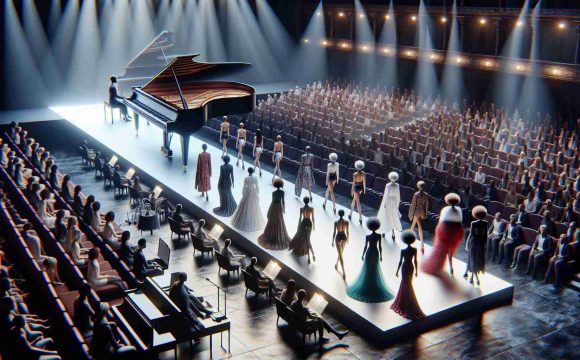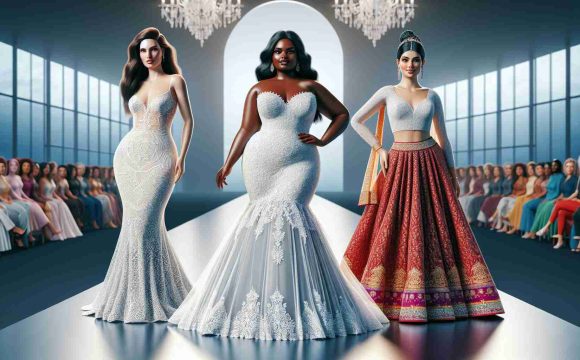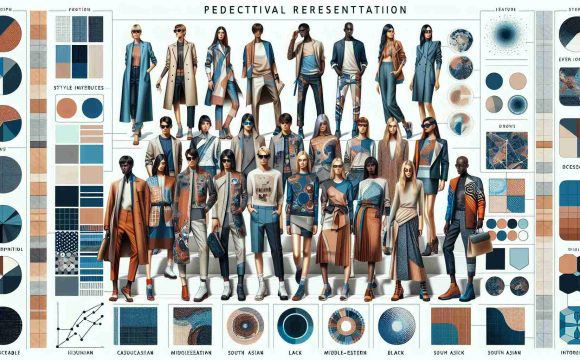A New Era in Luxury Fashion
The fashion industry is experiencing a whirlwind of changes as luxury brands seek innovative leadership to captivate their increasingly discerning clientele. Recently, major developments emerged, signaling a transformative phase for renowned maisons.
**Louise Trotter** has been appointed as the new creative director of **Bottega Veneta**, following her notable tenure at Lacoste and her imminent departure from Carven. This strategic move, driven by Kering’s François Henri Pinault, highlights Trotter’s expertise in neo-minimalist fashion, emphasizing sophistication and practicality that resonates with modern women.
In a surprising twist, **Matthieu Blazy**, who has been instrumental in revitalizing Bottega Veneta, is now set to take the helm at **Chanel**. This highly sought-after role came after the departure of Virginie Viard, and Blazy’s task includes leading various collections, including the coveted Haute Couture line. His track record promises an exciting future for the iconic brand.
These appointments come on the heels of significant shifts within the fashion landscape, including recent exits and installations at top brands like Maison Margiela and Celine. As rivalries intensify and fresh talents emerge, the luxury fashion realm embarks on an invigorating journey, searching for a new sense of direction amidst a backdrop of constant evolutionary change. The question remains: what spectacular trends will these new leaders unveil?
The Future of Luxury Fashion Leadership: What’s Next?
The luxury fashion industry is undergoing significant transformations with pivotal leadership changes at some of the most prestigious brands. As the market adapts to new consumer demands, these appointments signal not only a change in creative direction but also the emergence of trends that could redefine the industry.
**Key Features of New Leadership in Luxury Fashion**
1. **Innovation and Creativity**: The appointment of Louise Trotter at Bottega Veneta marks a shift towards neo-minimalist designs, which focus on simplicity, functionality, and elegance. This aligns well with a growing consumer preference for timeless pieces that are both stylish and practical.
2. **Market Dynamics**: The luxury fashion market is projected to grow substantially, driven by increasing disposable income and a desire for sustainable fashion options. According to recent market analysis, the sector is expected to reach a value of over $450 billion by 2025, fueled by both established and emerging brands adopting innovative approaches.
3. **Sustainability Trends**: The fashion industry is progressively leaning towards sustainability, with brands increasingly seeking ethical production methods and materials. Trotter’s focus on sophisticated practicality could resonate with environmentally-conscious consumers looking for quality over fast fashion.
4. **Diverse Customer Engagement**: With Matthieu Blazy taking the lead at Chanel, there is anticipation for a more inclusive and diverse representation in collections. This shift can cater to a broader audience, appealing to younger consumers who value brands that embody inclusivity and modern storytelling.
**Potential Challenges and Limitations**
– **Rapid Product Cycles**: The luxury sector faces criticism over fast fashion influences. New leaders must balance the demand for frequent new collections with the need for quality and sustainability.
– **Consumer Loyalty**: As the landscape evolves, established brands must adapt to shifting consumer preferences without alienating long-time customers.
**Pricing Insights and Market Comparisons**
Luxury items typically have a premium price tag; however, emerging brands are challenging traditional pricing strategies by offering high-quality goods at lower prices. This could lead to increased competition among established houses, pushing them to reconsider their pricing models.
**Future Predictions for Luxury Fashion**
With the fresh leadership from Trotter and Blazy, we’re likely to see an increased emphasis on storytelling through fashion—collections inspired by diverse narratives and cultures. This trend may further attract younger demographics, aligning with their values for authenticity and representation.
**Conclusion**
As the luxury fashion industry embraces a new era of leadership and innovation, the focus on sustainability, inclusivity, and creativity is set to change the landscape of luxury shopping. Only time will reveal the full impact of these appointments, but they hold the promise of exciting developments that cater to the evolving expectations of discerning clients.
For more insights on luxury fashion trends and the latest in designer news, visit Vogue to stay updated.





